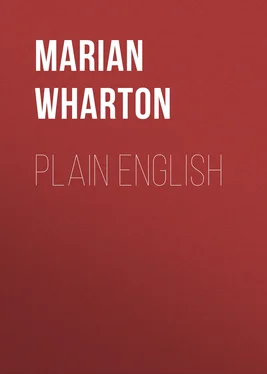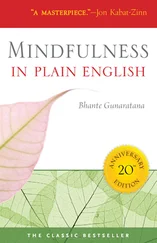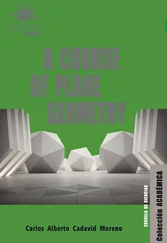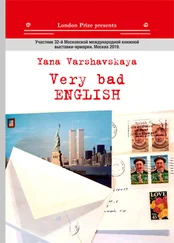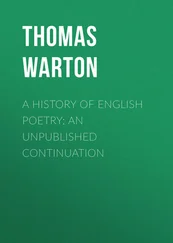Marian Wharton - Plain English
Здесь есть возможность читать онлайн «Marian Wharton - Plain English» — ознакомительный отрывок электронной книги совершенно бесплатно, а после прочтения отрывка купить полную версию. В некоторых случаях можно слушать аудио, скачать через торрент в формате fb2 и присутствует краткое содержание. Жанр: foreign_edu, foreign_language, на английском языке. Описание произведения, (предисловие) а так же отзывы посетителей доступны на портале библиотеки ЛибКат.
- Название:Plain English
- Автор:
- Жанр:
- Год:неизвестен
- ISBN:нет данных
- Рейтинг книги:5 / 5. Голосов: 1
-
Избранное:Добавить в избранное
- Отзывы:
-
Ваша оценка:
- 100
- 1
- 2
- 3
- 4
- 5
Plain English: краткое содержание, описание и аннотация
Предлагаем к чтению аннотацию, описание, краткое содержание или предисловие (зависит от того, что написал сам автор книги «Plain English»). Если вы не нашли необходимую информацию о книге — напишите в комментариях, мы постараемся отыскать её.
Plain English — читать онлайн ознакомительный отрывок
Ниже представлен текст книги, разбитый по страницам. Система сохранения места последней прочитанной страницы, позволяет с удобством читать онлайн бесплатно книгу «Plain English», без необходимости каждый раз заново искать на чём Вы остановились. Поставьте закладку, и сможете в любой момент перейти на страницу, на которой закончили чтение.
Интервал:
Закладка:
He feels the rough surface.
It tastes bitter.
He tasted the bitter dregs.
Exercise 2
Use the following verbs in sentences as both complete and incomplete verbs, as for example, The snow melts. The sun melts the snow.
melts
write
stopped
answer
rings
fall
see
strike
INCOMPLETE VERBS
98.Do you notice any difference in the two verbs in the following sentences:
The boy found the ball.
The earth is round.
In the sentence, The boy found the ball , the word ball tells what the boy found . The verb found expresses action; it tells what the boy does . Boy is the subject of the action—the one who performs the action. The word ball is the object of the action. It shows the receiver of the action. In the sentence, The earth is round , is does not express action. The earth is not doing anything, it simply is . The verb is expresses a state or condition and is incomplete, for you do not know what state or condition is expressed until we add the other word or words which describe the state or condition.
Notice the following sentences:
The earth is round.
The earth is our home.
The earth is a sphere.
The earth is large.
The words round , sphere , home and large , describe the earth which is the subject of the verb is .
99.So we have two classes of incomplete verbs, the verbs that express action and the verbs that express state or condition. The verbs which express action are called transitive verbs. Transitive is a word derived from the Latin, and means literally passing over .
100.So a transitive verb describes an action which passes over from the subject to the object. As for example in the sentence, The player struck the ball , struck is a transitive verb—a verb of action—describing the action of the subject, player , which passes over to the object, ball . Therefore we have our definition of a transitive verb:
A transitive verb is one that has a complement showing who or what receives the action expressed by the verb.
The complement or word that denotes the receiver of the action expressed by a transitive verb is called the object.
When you look up the meaning of verbs in your dictionary, you will find some verbs marked v.i. , and some verbs marked v.t. V.t. is the abbreviation for verb transitive . Whenever you find a verb marked v.t. , you know that it is a transitive verb, a verb of action, one which requires an object to complete its meaning. V.i. is the abbreviation for verb intransitive . Some grammarians use the term intransitive to include both complete and copulative verbs. We have used the terms complete and incomplete because they are much simpler and clearer in describing the two general classes of verbs, but you will remember that when you find verbs marked v.i. in the dictionary that these include complete and copulative verbs.
101.Now notice these sentences:
The earth is round.
The earth is a sphere.
In these sentences the verb is does not express action, but connects or couples the complements round and sphere with the subject earth . Verbs used in this way are called copulative verbs, from the word copula , which means to complete or to connect . The words round and sphere are not the objects of the verb, for they do not describe the receiver of any action. They are the words which describe the state or condition expressed in the verb is , and are called the attribute complement of the verb.
You note that this complement may be either an adjective or a noun. In the sentence, The earth is round , the adjective, round , is used as the complement; in the sentence, The earth is a sphere , the noun, sphere , is used as the complement. So we have our definition of copulative verbs.
102. Verbs that express state or condition are called copulative verbs.
The word or words that complete the meaning of an incomplete verb expressing state or condition, are called the complement, or attribute complement.
There are only a few of these copulative verbs. All forms of the verb, be ; like am , is , are , was and were , and the verb phrases like must be , can be , will be , shall be , have been , had been , etc.; and the verbs seem , appear , become , look , feel , taste , sound and smell , are the principal copulative verbs.
Exercise 3
Study carefully the following sentences. Note whether the complement of the copulative verb is an adjective or a noun. Draw one line under each adjective used as a complement and two lines under each noun used as a complement.
The day is beautiful.
I am weary and tired.
The men were soldiers.
The tasks seem endless.
All men must be free.
The workers have been slaves.
The burden becomes heavier every day.
The children feel happy and care-free.
Evolution is the development of life.
Grammar is the study of words and their use.
Knowledge is freedom.
The music sounds sweet on the midnight air.
He looks well today.
The dregs taste bitter.
The incense smells sweet.
Exercise 4
Complete the following sentences by adding an object or a complement.
1. Perseverance in your study will bring.......
2. The great need of the working class is.......
3. We shall never acknowledge.......
4. By the sweat of no other's brow shalt thou eat.......
5. The Revolutionary fathers founded.......
6. The workers demand.......
7. Labor's only road to freedom is.......
8. Life, liberty and the pursuit of happiness are.......
9. If you struggle, you will gain.......
10. An incomplete verb requires.......
11. The complement of a transitive verb is called.......
12. The complement of a copulative verb may be either......or.......
103. There are two classes of verbs, complete and incomplete.
A complete verb is one that requires no complement.
An incomplete verb is one that requires a complement to complete its meaning.
Incomplete verbs are of two kinds: 1. Those that express action; 2. Those that express state or condition.
Incomplete verbs that express action are called transitive verbs.
Incomplete verbs that express state or condition are called copulative verbs.
The complement or the word that denotes the receiver of the action expressed in a transitive verb is called the object.
The word or words that complete the meaning of a copulative verb are called the complement, or attribute complement.
The same verb may be complete or incomplete, according to the way in which it is used.
Exercise 5
In the following sentences draw a single line under the complete verbs and a double line under the incomplete verbs. Then determine whether the incomplete verbs are transitive or copulative verbs, and draw a line through the object or the complement.
Читать дальшеИнтервал:
Закладка:
Похожие книги на «Plain English»
Представляем Вашему вниманию похожие книги на «Plain English» списком для выбора. Мы отобрали схожую по названию и смыслу литературу в надежде предоставить читателям больше вариантов отыскать новые, интересные, ещё непрочитанные произведения.
Обсуждение, отзывы о книге «Plain English» и просто собственные мнения читателей. Оставьте ваши комментарии, напишите, что Вы думаете о произведении, его смысле или главных героях. Укажите что конкретно понравилось, а что нет, и почему Вы так считаете.
